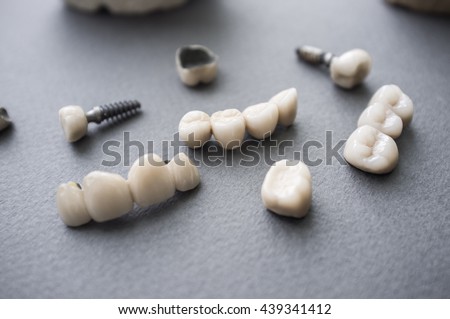- Establish a consistent oral hygiene routine with proper brushing and flossing.
- Adopt a balanced diet to minimize the risk of tooth decay, such as avoiding sugary and acidic foods.
- Visit your dentist regularly for check-ups and cleanings.
- Incorporate fluoride products into your oral care routine.
- Consider teeth replacements in cases of tooth loss.
Dealing with tooth decay is essential for maintaining good oral health and preventing further dental problems. Tooth decay occurs when bacteria in the mouth produce acids that attack and weaken the tooth enamel, leading to cavities. If left untreated, tooth decay can progress and cause pain, infection, and even tooth loss. This guide will give you five practical tips to help you deal with tooth decay effectively and protect your oral health.
1. Maintain a Proper Oral Hygiene Routine
One of the fundamental ways to prevent and manage tooth decay is by establishing a consistent oral hygiene routine. It is recommended that you brush your teeth with fluoride toothpaste and a soft-bristled toothbrush at least two times a day. Make sure to clean all surfaces of your teeth, including the back molars. Additionally, incorporate daily flossing into your routine to remove plaque and food particles between your teeth and the gum line. Proper oral hygiene practices help eliminate harmful bacteria and reduce the risk of tooth decay.
2. Adopt a Tooth-Friendly Diet

Your diet plays a significant role in oral health. Limit your intake of sugary and acidic foods and beverages to prevent tooth decay. These substances contribute to the production of harmful acids that attack tooth enamel. Instead, choose a balanced diet with plenty of fruits, vegetables, lean proteins, and whole grains. Drinking plenty of water throughout the day also helps rinse away food particles and neutralize acids in the mouth. By making dietary choices that promote oral health, you can minimize the risk of tooth decay.
3. Regular Dental Check-ups and Cleanings

Visiting your dentist regularly is crucial for preventing and managing tooth decay. Schedule dental check-ups every six months or as recommended by your dentist. During these visits, your dentist will comprehensively examine your oral health, identify any signs of tooth decay, and provide necessary treatments. Professional dental cleanings are also essential to remove stubborn plaque and tartar buildup, which can lead to tooth decay if left untreated. Regular dental visits enable early detection and timely intervention, ensuring the longevity of your teeth.
4. Use Fluoride Products
Fluoride is a natural mineral that strengthens tooth enamel and makes it more resistant to acid attacks. Incorporating fluoride products into your oral care routine can be highly beneficial in preventing tooth decay.
Here are some FAQs regarding fluoride products:
How Does Fluoride Help?
Fluoride helps to protect teeth from decay by restoring the minerals in tooth enamel and making it more resistant to acid attacks. This mineral also helps reduce the number of bacteria in your mouth, further preventing cavities and tooth decay. In addition, fluoride products can help remineralize any signs of damage before they become cavities or decay.
What Are the Benefits of Using Fluoride Products
Using fluoride products regularly can be beneficial for maintaining good oral health. Doing so can help prevent tooth decay and cavities while reducing gum disease, plaque buildup, and bad breath. In addition, studies have shown that regular use of fluoride products can help reduce the cost of dental treatments in the long run.
What Types of Fluoride Products Are Available?
Various products are available when incorporating fluoride into your oral care routine. You can find toothpaste, mouthwashes, and gels or varnishes that contain this mineral. Talk to your dentist about what product is best for you, as they can recommend one that meets your specific needs.
How Often Should I Use Fluoride Products?
Ideally, you should use a fluoride-containing product at least twice daily — once in the morning and once before bedtime. Additionally, you should visit your dentist every six months for a professional fluoride treatment. This will help ensure that the fluoride levels in your mouth remain optimal and aid in preventing tooth decay.
5. Consider Teeth Replacements for Tooth Loss

In some cases, tooth decay can lead to tooth loss. This is because the enamel may become too weak and unable to withstand the bacteria, resulting in a cavity that extends deep into the tooth. In cases where tooth decay has progressed to tooth loss, considering a durable replacement tooth becomes essential. Dental implants, for instance, are a great way to replace your lost tooth. The implants are surgically implanted in the jaw and provide a sturdy foundation for artificial replacement teeth, allowing you to enjoy a natural-looking smile again.
In Summary
Dealing with tooth decay requires a proactive approach to maintaining optimal oral health. You can effectively manage tooth decay by following a proper oral hygiene routine, adopting a tooth-friendly diet, attending regular dental check-ups, using fluoride products, and considering teeth replacements when necessary. Prevention is key, so taking care of your teeth and seeking professional dental care promptly is important. With these tips, you can take control of your oral health and enjoy a bright and healthy smile for years.